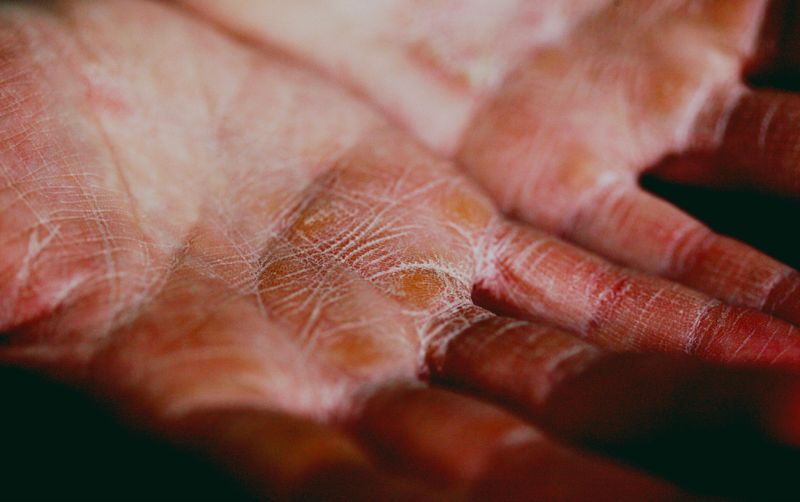Mission statement
Sanofi has created the 'Skin in the Game' campaign to raise awareness of atopic eczema; both the effects it has on people and what constructive potential solutions might be in place to make living with it easier. Our aim is to improve the quality of life for people living with atopic eczema, and for them to be in control of their condition.
This campaign involves working with partners to identify ways in which we can raise the standard of care for people living with atopic eczema. We hope that by increasing awareness of the issues and challenges, celebrating best practice, and supporting the implementation of local atopic eczema strategies, the 'Skin in the Game' campaign can make a small contribution in improving the lives of people living with the conditon and their carers.
Background
Moderate-to-severe atopic eczema, (known clinically as atopic dermatitis) is a chronic inflammatory autoimmune disease that causes the skin barrier to become defective, leading to a loss of function that means that allergens can sensitise through the skin. It is normally characterised by itchy, non-contagious, inflamed skin that presents itself on any part of the body1.
Estimates vary, but figures suggest that it affects about 10 - 30% of children and about 2 - 10% of adults2. Normally, children are expected to grow out of it, but when this doesn't happen, its effects continue into adulthood. It is a condition with links to poor mental health3 and also has a financial burden on both individual and society4.
Policy asks
Sanofi wants to change the handling of atopic eczema for the better. In partnership with the National Eczema Society, Outreach Support, the British Skin Foundation and Allergy UK, we developed some recommendations as to how it can be done. We would like to see:
- People living with atopic eczema being supported to better manage their skin condition, and their mental health - for example via improved access to specialist care and psychodermatology (psychodermatology is a service that provides support and therapy for people with skin disorders5)
- People living with atopic eczema becoming genuine partners in their own care
- Dermatology services supported to provide patient-centric care
- Integrated Care Systems (ICSs) adopt localised dermatology strategies
Through collaboration between the NHS, Government, people with eczema, industry and other stakeholders these recommendations above are both acheiveable and desireable, and we at Sanofi are keen to work with all stakeholders to improve the lives of people living with atopic eczema.
Projects for Skin in the Game

Uncapping Potential in the diagnosis and management of AD

Optimal Care in Atopic Dermatitis

Patient Charter

Parliamentary Drop-In

Costs of Atopic Dermatitis

Disparities in Dermatology Heatmap

Medical Photography
References
- “Atopic Eczema” (2023). NHS. https://www.nhs.uk/conditions/atopic-eczema/ [Accessed June 2025]
- “Atopic Eczema” (2023). National Library of Medicine. https://www.ncbi.nlm.nih.gov/books/NBK448071/ [Accessed June 2025]
- “Not Just Skin Deep” (2021). Allergy UK. https://www.allergyuk.org/wp-content/uploads/2021/11/Not-Just-Skin-Deep-min-compressed.pdf [Accessed June 2025]
- “Costs of AD” (2023). Demos.https://demos.co.uk/research/the-costs-of-atopic-dermatitis/ [Accessed June 2025]
- NHS Royal Free London NHS Foundation Trust.https://www.royalfree.nhs.uk/services/services-a-z/dermatology/psychodermatology/psychodermatology-faqs/ [Accessed June 2025]
MAT-XU-2303889 V4.0
Date of preparation: May 2025
